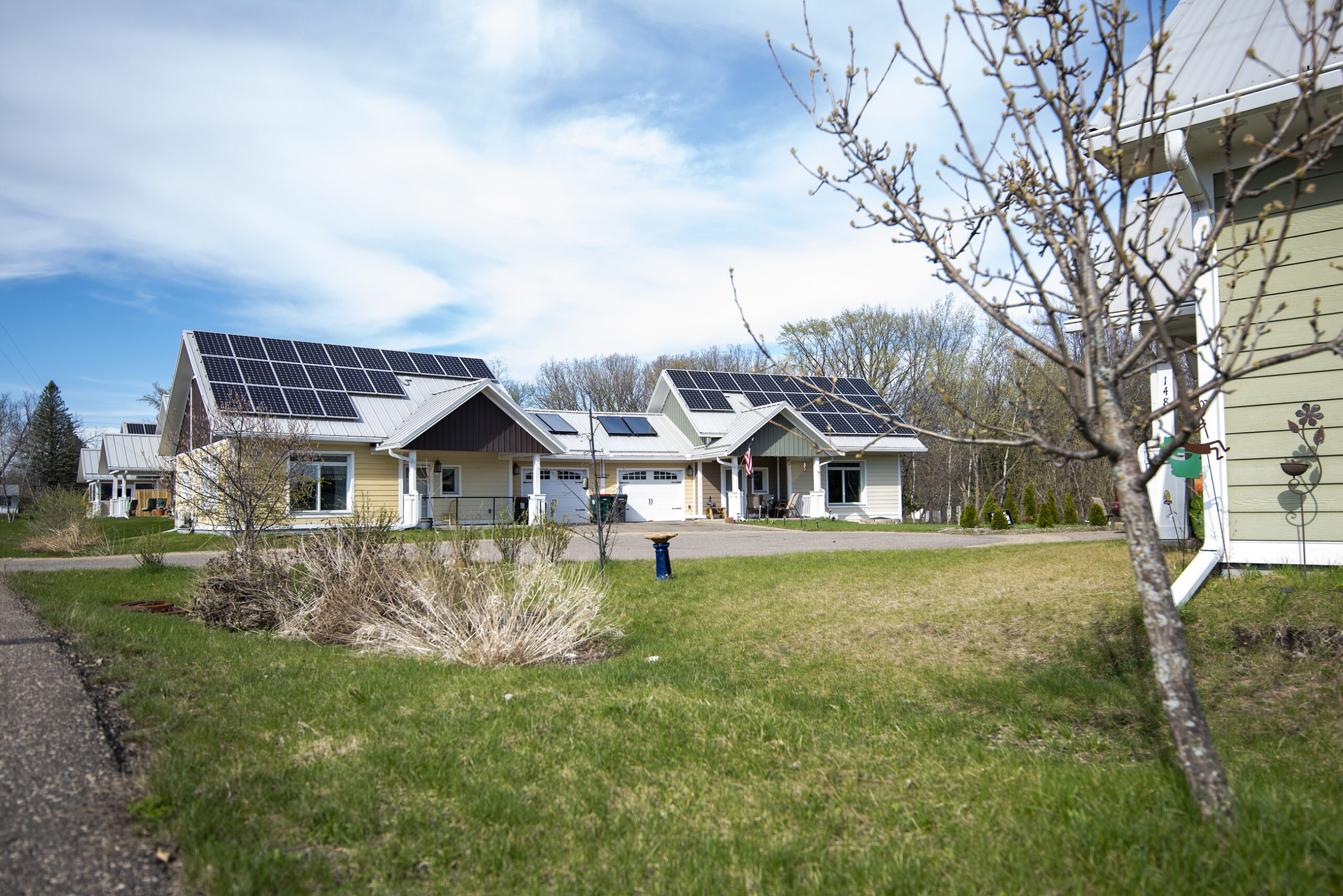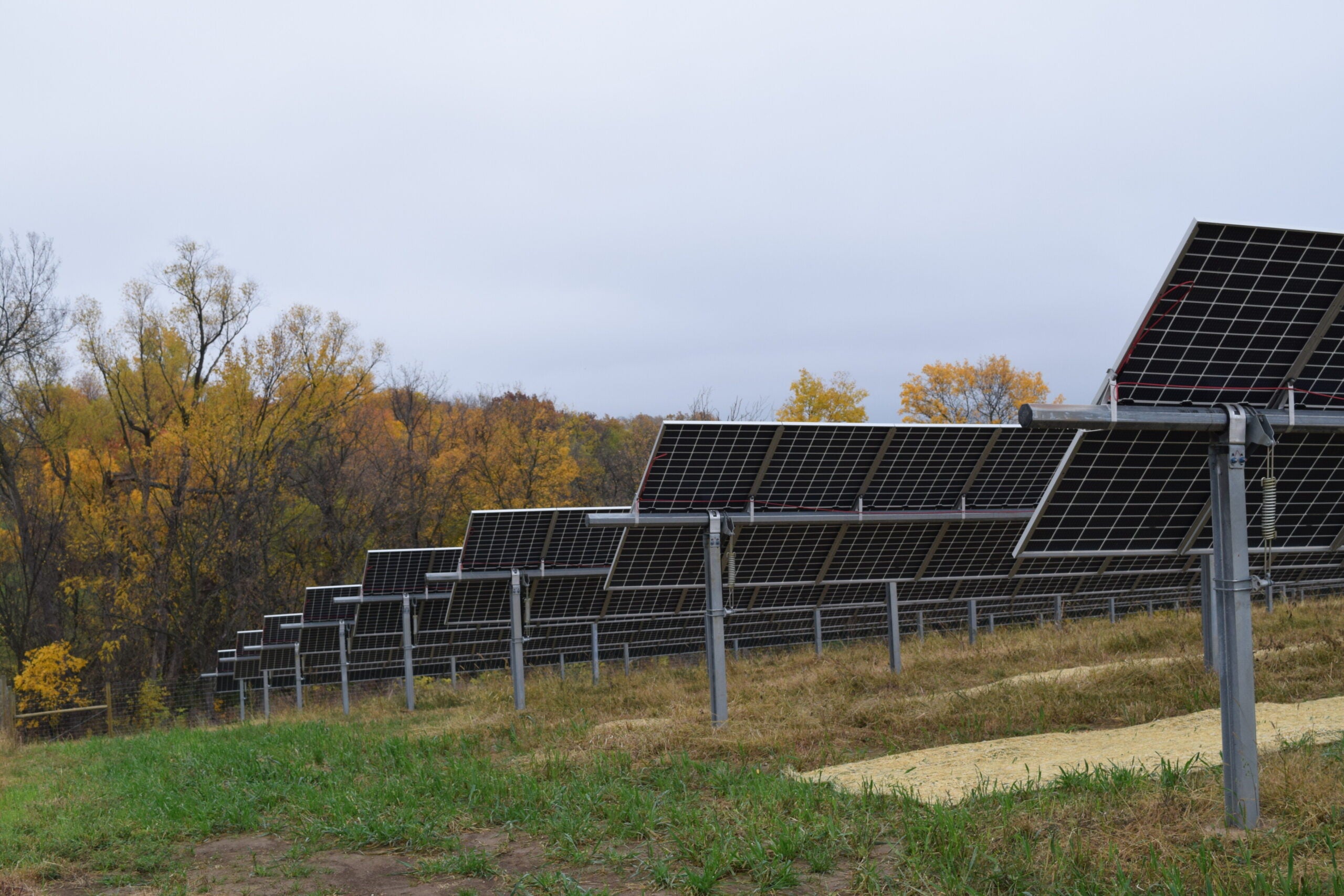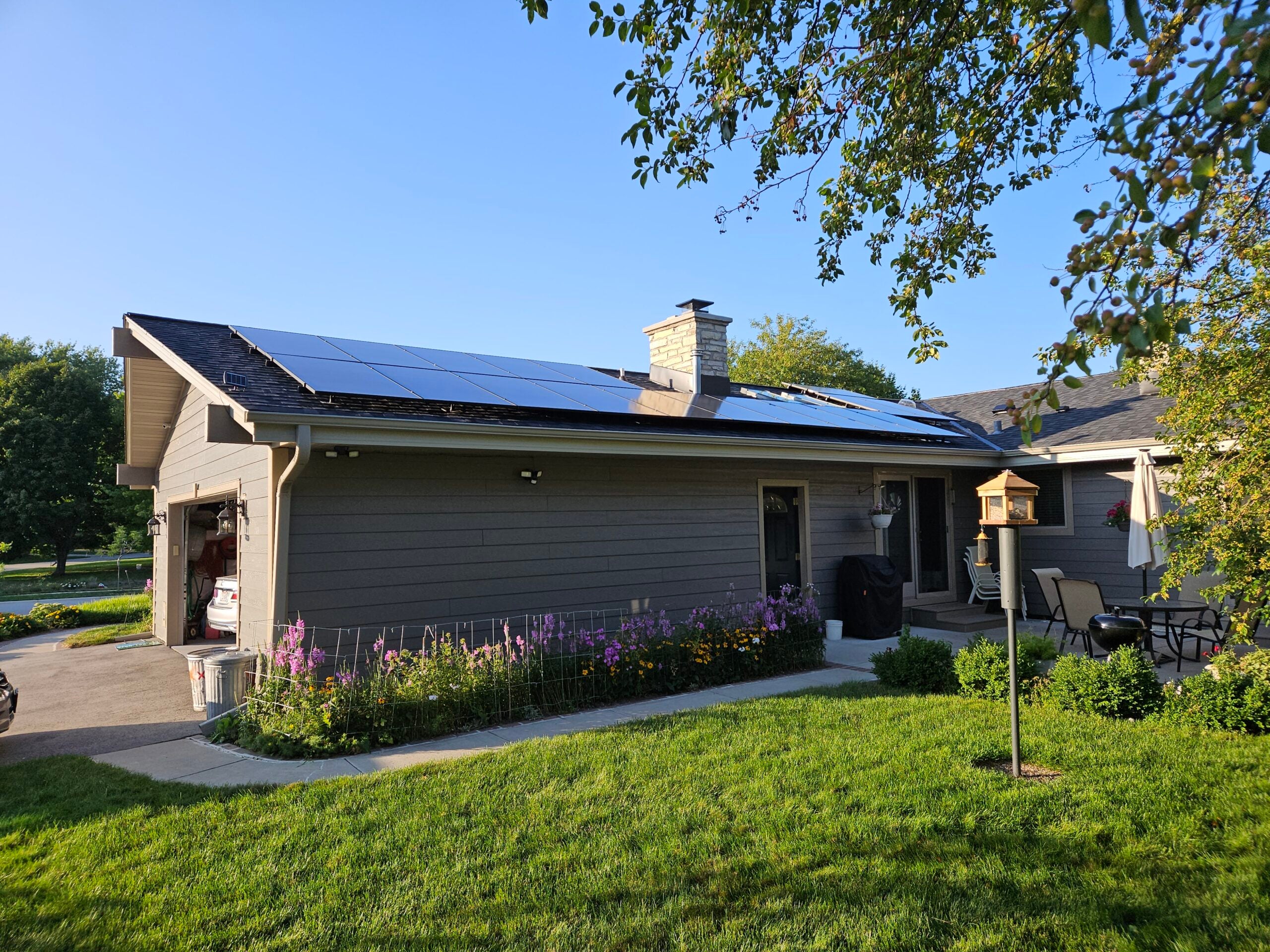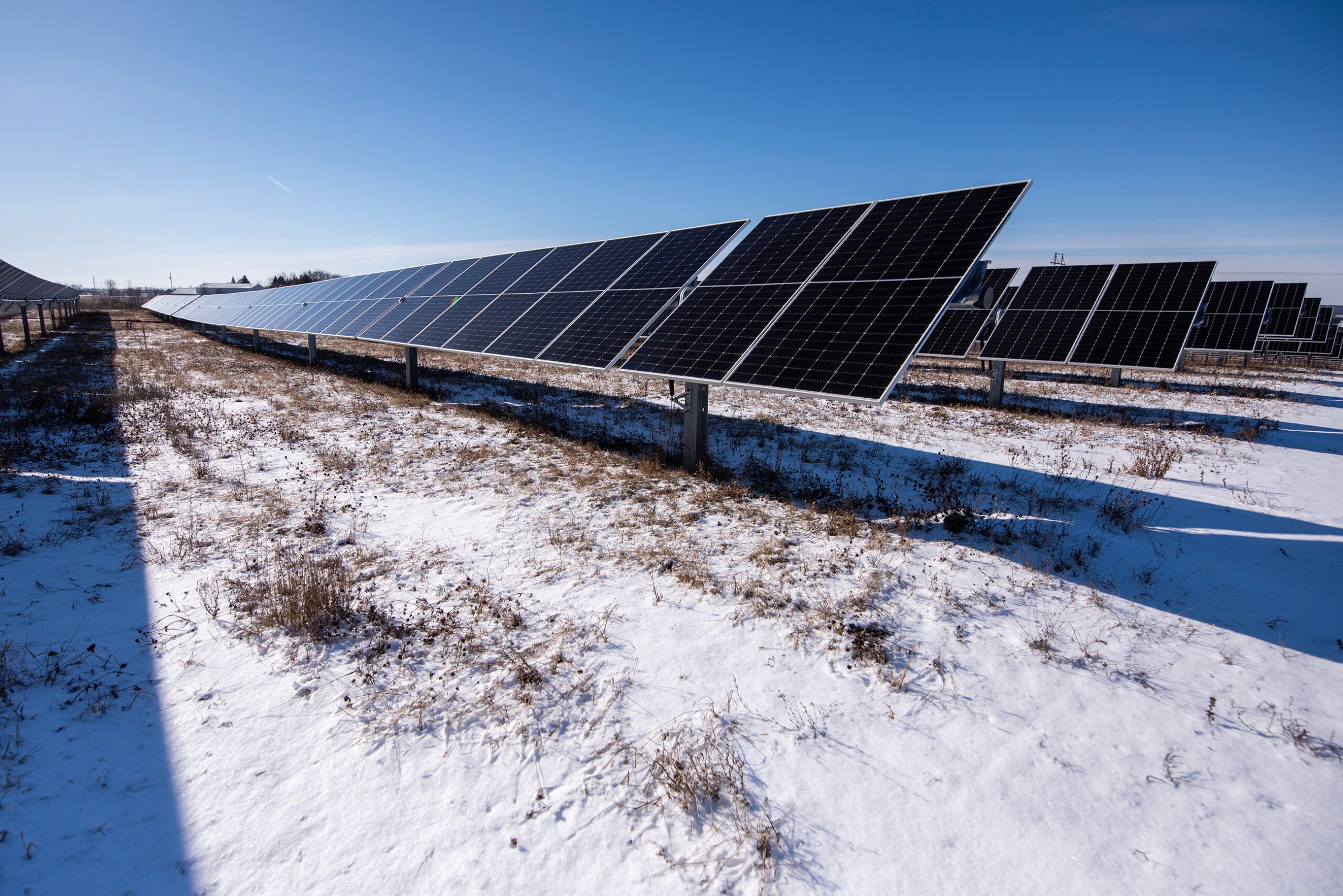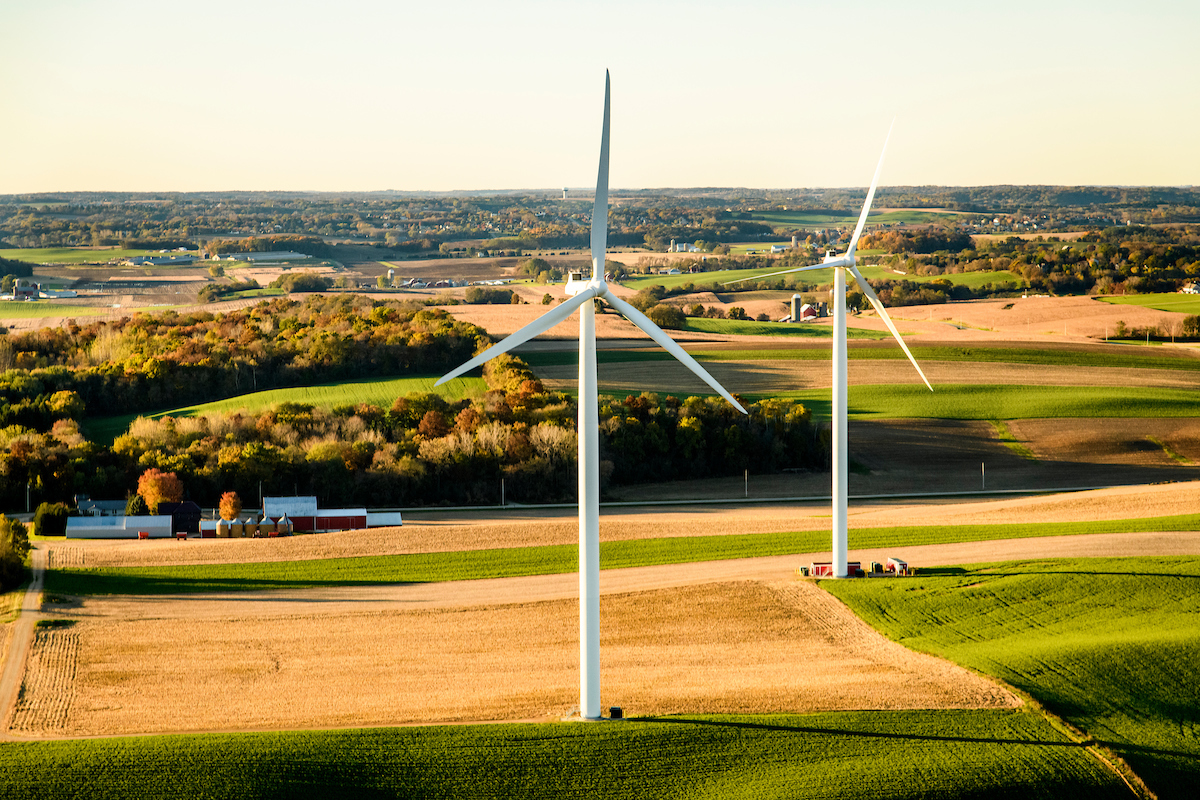Wisconsin homeowners and small businesses interested in installing solar panels on their property face more hurdles than their counterparts in some other states, clean energy advocates say.
That’s because state regulation makes it tough to lease solar panels, though leasing agreements are widely available in other places. In Wisconsin, the primary mechanism for installing solar panels on a property is contracting through a private company to buy and install the panels, which often has an upfront cost of tens of thousands of dollars.
The federal Inflation Reduction Act offers a variety of tax credits for homeowners and small businesses — as well as other programs for nonprofits and local governments. But many of those incentives come on the back end of a solar project.
News with a little more humanity
WPR’s “Wisconsin Today” newsletter keeps you connected to the state you love without feeling overwhelmed. No paywall. No agenda. No corporate filter.
“The costs of solar have come down over the years, but it’s still a significant upfront cost,” said Andrew Kell, policy director for RENEW Wisconsin, a nonprofit that promotes renewable energy. “And if you are a not-for-profit organization, small business with capital investment constraints, a low-income residential customer or a moderate-income customer, it’s oftentimes hard to make that investment.”
High upfront costs have largely limited solar to people who have the means to buy panels outright, according to Tom Content, executive director of the Citizens Utility Board of Wisconsin.
Those obstacles have been highlighted after developer Sun Badger Solar ceased operations earlier this year, leaving customers who spent tens of thousands of dollars in the dark about the status of incomplete solar projects.
One mechanism the Citizens Utility Board and RENEW Wisconsin say would help address the issue is called, “third-party financing.” It essentially allows customers to lease panels on their property from an installer who owns the panels. At least 29 states allow third-party solar financing.
“In Wisconsin, technically it’s allowed, but only on a case-by-case basis, and you have to go through a lot of hurdles to do it,” Content said of third-party financing. “There have been some projects that have moved forward under leasing, but not very many.”
Those looking to utilize third-party financing need to get individual projects approved by the Public Service Commission of Wisconsin, the state’s utility regulator.
Utilities have opposed third-party financing because they say it violates state law by allowing installers to act as a utility without being regulated as one.
Brendan Conway, a spokesperson for WEC Energy Group, the parent company of We Energies and Wisconsin Public Service, said his utility isn’t opposed to rooftop solar itself. He said We Energies interconnected more than 1,100 rooftop solar projects alone last year. But he said the utility is against third-party solar, and argued out-of-state companies would benefit from it.
“These out-of-state developers are basically trying to circumvent the law (and) circumvent the Legislature, which has made it very clear: If you are going to sell power to customers, you need to be a regulated utility,” Conway said. “This is an attempted end-around by these companies to try to become utilities, but not have any of the regulations that we have to go through.”
The Public Service Commission is expected to provide clarity on the legality of third-party financing later this year.
The commission approved a request to allow a family in Stevens Point to lease a solar system in December 2022, but in January stopped short of making a declaration that such financing arrangements were legal on a broad scale. Regulators are gathering more information before revisiting the request.
A bill that sought to exempt solar installers from being regulated as a utility failed to pass last year.
While the future of third-party solar in Wisconsin remains uncertain, We Energies has offered a pilot program that works similarly. The “Solar Now” program allows We Energies to essentially rent a roof from a business, nonprofit or local government for a solar installation.
Conway said the program is different from third-party solar in the sense that the energy generated is fed into the grid instead of an individual structure. The utility launched a pilot program in 2018, and sought to expand the program this year.
The Public Service Commission blocked that expansion at a meeting earlier this month, with several commissioners expressing concerns that it could further monopolize the solar market — especially as there are now more options than in 2018.
“I get concerned when utilities use their monopoly position to gain an advantage in what should be the private marketplace,” Commission Chair Rebecca Valcq said on March 16. “If I’m a commercial or an industrial customer and I want to have a solar array on my property, then I should be able to go out and build that solar array and I should be able to enjoy the benefit of receiving the energy directly to my facility.”
Conway said We Energies was disappointed by the commission’s decision, and is looking at potential next steps.
“We’ve had incredibly strong interest from customers across the state, and that includes governments, schools, community groups (and) large companies,” he said. “They are looking to join this program and expand their access to renewable energy, meeting their clean energy goals. And as of now, the program cannot continue.”
But RENEW Wisconsin and the Citizens Utility Board shared the commission’s concerns, Kell and Content said. They framed the program as third-party financing run by a utility.
“It is a program that is problematic in that it’s leveraging ratepayer dollars from a utility monopoly service operator that is able to block competition from a market that would be able to give the customer choice for several solar installers to assess their options, to have solar installed on the rooftop (and) to control their bills,” Kell said.
RENEW Wisconsin and the Citizens Utility Board of Wisconsin are underwriters for Wisconsin Public Radio.
Wisconsin Public Radio, © Copyright 2025, Board of Regents of the University of Wisconsin System and Wisconsin Educational Communications Board.

